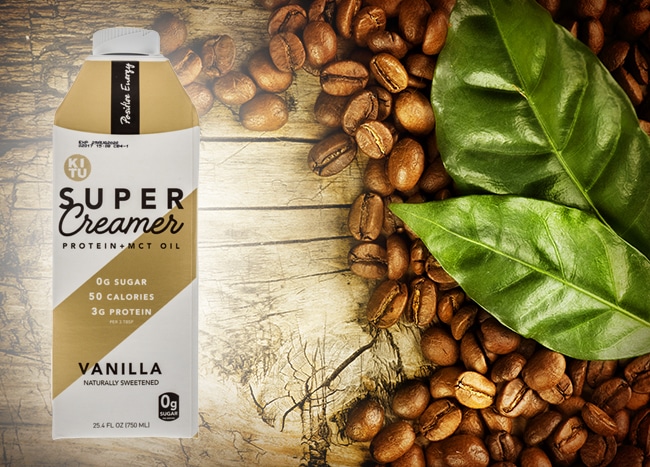Bevscape: The Latest Beverage Brand News
Nestlé Seeks to Sell Regional Water Brands, ReadyRefresh
Nestlé announced in June it is seeking to divest several core products and services from its Nestlé Waters North America unit, including regional spring water brands, its purified water business and its beverage delivery service ReadyRefresh.
According to a press release dated June 11, the Nestlé Waters North America portfolio reported over $3.6 billion in sales in 2019, excluding international brands. Among the regional water brands considered for sale are Poland Spring, Deer Park, Ozarka, Ice Mountain, Zephyrhills and Arrowhead, as well as master brand Nestlé Pure Life, which is available in bottles and 5 gallon jugs.
In addition to the planned divestment, which was approved by the Nestlé S.A. board of directors, the company will focus on increasing sales of its international brands such as Perrier and S. Pellegrino. As well, the company will seek out “strategic acquisitions” in the water category “while pledging to make its entire global water portfolio carbon neutral and replenish associated watersheds by 2025.”
According to market research firm Nielsen, Nestlé’s unflavored bottled water sales have declined over the past year. Despite reporting over $3.4 billion for the 52-week period ending June 9, sales were down 2.4% year-over-year and declined 14.8% over the past four weeks. Volume sales were down 3.2% year-over-year and 16.9% in the four-week period. Although the division’s sparkling flavored water dollar sales were up to $278 million, a 2.6% increase for the year, those products have also seen recent declines, down 14% in May.
“The creation of a more focused business enables us to more aggressively pursue emerging consumer trends, such as functional water, while doubling down on our sustainability agenda,” said Nestlé CEO Mark Schneider in the release. “This strategy offers the best opportunity for long-term profitable growth in the category, while appealing to environmentally and health-conscious consumers.”
The announcement came roughly four months after Nestlé Waters North America president and CEO Fernando Mercé stepped down, citing personal reasons. Mercé had held the position since 2017 and no successor was named, with the company only saying a new CEO would be named “in due course.” Since February, the division has reported to U.S. market head and CEO of Nestlé USA Steve Presley.
It is unclear how the divestment may affect ReadyRefresh’s partner brands. In addition to delivering Nestlé water brands to homes and offices, the service expanded its portfolio first in November, bringing on Vita Coco, and later adding nitro coffee maker RISE Brewing Co., hellowater and UPTIME Energy.
Super Coffee Signs Master Distribution Agreement with Anheuser-Busch InBev
In June, Kitu Life Super Coffee signed a master distribution agreement with Anheuser-Busch InBev (AB) that will place the brand on DSD trucks nationwide. AB’s investment arm ZX Ventures will also take a minority stake in the brand, pending the closure of an open funding round.
The New York-based brand will serve as AB’s exclusive master coffee for 18 months, though wholesalers can still carry additional brands, according to sources close to the deal. CEO Jim DeCicco confirmed to BevNET that ZX will invest in the company in a round expected to close in July, but declined to comment further except noting that several celebrity investors are also anticipated. Sources said that the round is likely to be around $25 million.
DeCicco said the company previously discussed potential investments with ZX Ventures and in Q1 expanded its DSD network with 60 AB wholesalers across the country. However, Super Coffee became “bullish” about securing a national distribution agreement once rumors began to swirl around performance energy drink Bang’s departure from the AB system for PepsiCo began. The brand is more focused on competing against Starbucks than it is energy drinks, DeCicco noted, though the absence of a leading caffeinated beverage in the AB portfolio provided Super Coffee with the opportunity to strike a deal.
“To build our business to its fullest potential, we needed a national DSD network,” DeCicco said. “AB delivers to every channel of trade, every geography and appeals to every demographic. Our goal is to mass-produce positive energy, which means making our products accessible to everyone everywhere and AB is uniquely positioned to help us do that.”
Super Coffee reported $18.1 million in sales for the 52-week period ending March 22, a year-over-year increase of 984%, according to market research firm IRI.
According to DeCicco, many of Super Coffee’s current national customers are serviced through direct distribution — including Kroger, Publix and Walmart — and “anytime” the company transitions a direct customer to DSD it “immediately” sees a 30% increase in sales. The partnership will also allow Super Coffee to increase its presence in the convenience channel, which is “currently dominated” by Starbucks and where DeCicco said the brand only has about 2% ACV.
New Age Changes Name Amid Reorganization
New Age Beverages Corp. has changed its name to “NewAge, Inc.” according to a notice of annual meeting of shareholders filed with the U.S. Securities and Exchange Commission (SEC) in early June.
The proposed name change, which was approved by shareholders later that month, comes as the publicly traded company seeks to divest several beverage brands from its portfolio and diversify its product offerings into categories such as cosmetics and CBD topicals. New Age had previously announced in its past two quarterly earnings calls that it was reviewing its portfolio of core brands and would seek to divest only those that have not met expectations.
However, an executive summary deck dated May 2020 and reviewed by BevNET showed the company offering “all or a selection” of its entire brand portfolio, including Aspen Pure, Bucha, Coco Libre, Marley and Xing, as an acquisition opportunity. New Age president Olivier Sonnois told BevNET in March that as the company prepares to divest certain brands, products including Aspen Pure and Coco Libre were more likely to be sold than the others.
The deck also appeared to welcome offers for the company’s DSD operation, which services over 7,000 outlets in Colorado and surrounding states and has generated over $45 million in revenue, according to the deck. The business includes a 250,000 square foot warehouse. New Age currently distributes more than 70 brands, including Essentia, Sparkling Ice, AriZona and Silk.
Sonnois said in June that the company is not actively seeking or likely to sell its DSD network or its entire brand portfolio. The DSD network and additional brands that the company prefers to retain — including shelf-stable kombucha Bucha — were included in the deck, he said, to provide further context on the company’s and individual brands’ performance.
He added that many prospective buyers were interested in a full scale acquisition of New Age’s beverage division, though a sale of these assets is not being entertained as of June. However, any sale of the DSD network would require an “extraordinary offer” and mark a massive shift in the company’s current strategic plans.
According to Sonnois, beverages currently account for roughly 85% of New Age’s business and will continue to play a significant role for the foreseeable future, even as the company looks to expand its presence in other CPG categories. As of publication, no brands have been sold; however, Aspen Pure and Coco Libre have been placed “on strategic hold” and were delisted from the company’s website. Marley, which Sonnois said has been pulled for retooling, is also currently on hiatus.
During the annual meeting, in addition to changing the name, shareholders are also scheduled to vote on reincorporating the company from Washington to Delaware, elect directors and to ratify the appointment of Nigerian firm Deloitte & Touche LLP as the company’s independent registered public accounting firm for the remainder of the 2020 fiscal year.
Shaka Tea Raises $2.3 Million as Brand Prepares for National Growth
Shaka Tea, a Hawaii-based maker of ready-to-drink and bagged tea products, raised $2.3 million in a funding round led by farming company Mahi Pono, bringing the brand’s total financing to $4.1 million.
In a press release announcing the deal in June, Shan Tsutsui, SVP at Maui-based Mahi Pono, said the partnership fits with the two companies’ mutual goal of supporting Hawaiian farmers. The round also includes investments from King’s Hawaiian, Gingerbread Capital, LDR Ventures, Allison Rose Culinary Ventures and Park Bench Capital as well as several angel investors. Mahi Pono will gain a seat on the brand’s board of directors and King’s Hawaiian will act as a board observer.
Founded in 2016, Shaka Tea produces ready-to-drink and bagged teas made from locally sourced Hawaiian mamaki tea leaves. The brand’s bottled line features zero calorie varieties including Lemon Lokelani Rose, Pineapple Mint, Guava Gingerblossom; and Mango Hibiscus. Each flavor is sweetened with monkfruit and retails for $1.99 to $2.49 per 14 oz. bottle.
Shaka Tea president Bella Hughes, who co-founded the brand with her husband and CEO Harrison Rice, said the funding will be used to support nationwide and international expansion. Shaka Tea is currently available in about 2,000 stores with an additional 1,000 accounts approved for rollout this year. The brand is sold at Whole Foods South Pacific region, The Fresh Market, GNC, Bristol Farms, Gelson’s, Lowes Foods and select Walmart locations, among other retailers.
While it is primarily focused on building its presence in the continental U.S., the brand also recently added Natural Lawson convenience store accounts in Japan, Hughes said.
“With a population of only 1.3 million, [Hawaii] is a very small market to play in,” Hughes said. “Our mission has always been to have the most economic impact with our local community and how we connect local sustainably sourced mamaki to now national and, with Japan, international demand. So extending to the continental U.S. was always our vision.”
According to Hughes, Shaka Tea aims to provide a premium-grade product at an affordable price point, a quality that will give the brand an edge in the crowded RTD tea category. Though the company uses premium ingredients sourced on the Hawaiian islands, the company has reduced costs by co-packing in the continental U.S.
Hughes noted that maintaining a lower price point is important to her and Rice, who were “nearly broke” when they founded the company four years ago and were dismayed by what they saw as a trend of increasingly expensive beverages. By keeping the price affordable, she said, Shaka Tea aims to scale rapidly and drive volume by being accessible to consumers of all income levels. As the U.S. economy enters a recession, Hughes credits the price point, along with a recent package redesign, with driving 300% year-over-year growth in Q1, despite the pandemic.


Receive your free magazine!
Join thousands of other food and beverage professionals who utilize BevNET Magazine to stay up-to-date on current trends and news within the food and beverage world.
Receive your free copy of the magazine 6x per year in digital or print and utilize insights on consumer behavior, brand growth, category volume, and trend forecasting.
Subscribe


